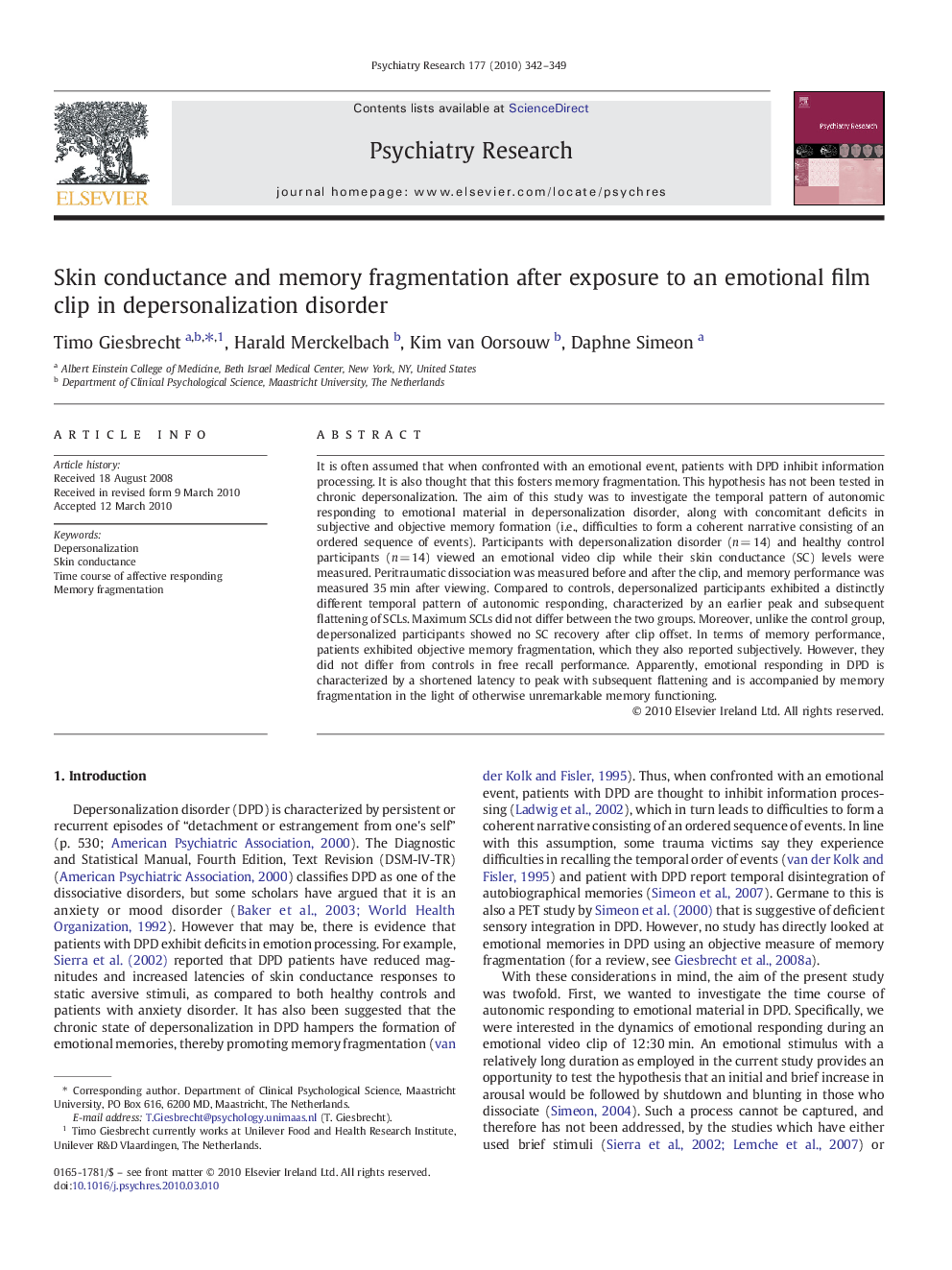| Article ID | Journal | Published Year | Pages | File Type |
|---|---|---|---|---|
| 333940 | Psychiatry Research | 2010 | 8 Pages |
It is often assumed that when confronted with an emotional event, patients with DPD inhibit information processing. It is also thought that this fosters memory fragmentation. This hypothesis has not been tested in chronic depersonalization. The aim of this study was to investigate the temporal pattern of autonomic responding to emotional material in depersonalization disorder, along with concomitant deficits in subjective and objective memory formation (i.e., difficulties to form a coherent narrative consisting of an ordered sequence of events). Participants with depersonalization disorder (n = 14) and healthy control participants (n = 14) viewed an emotional video clip while their skin conductance (SC) levels were measured. Peritraumatic dissociation was measured before and after the clip, and memory performance was measured 35 min after viewing. Compared to controls, depersonalized participants exhibited a distinctly different temporal pattern of autonomic responding, characterized by an earlier peak and subsequent flattening of SCLs. Maximum SCLs did not differ between the two groups. Moreover, unlike the control group, depersonalized participants showed no SC recovery after clip offset. In terms of memory performance, patients exhibited objective memory fragmentation, which they also reported subjectively. However, they did not differ from controls in free recall performance. Apparently, emotional responding in DPD is characterized by a shortened latency to peak with subsequent flattening and is accompanied by memory fragmentation in the light of otherwise unremarkable memory functioning.
